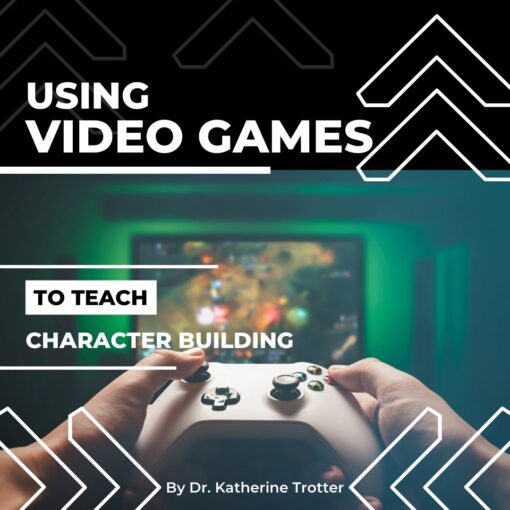
Raising Boys
Many boys enjoy playing video games, but parents may wonder if it is healthy for their children. Michael Gurian offers valuable advice and insights on how video games can be used to cultivate character in boys.
In his article, “Using Video Games to Teach Character,” Gurian argues that video games have the potential to be powerful tools for moral development and character building in boys. Even games that some may consider inappropriate, such as Grand Theft Auto, can be turned into assets for a boy’s maturation, but only if parents engage with their children and discuss the themes and messages of the games they play.
Gurian quotes General George Patton, who believed that the soul is reflected in our actions and thoughts, and suggests that we can use this idea to understand the intangible elements of war and character development. By approaching video games as opportunities for growth and learning, parents can help their sons develop the traits and skills they need to become responsible, mature men.”
Boys are not just playing a game; they are actually exploring a military world where they are trying to find their souls. During adolescence, males fill in neural pathways between the limbic area and the temporal lobe (known as “the spiritual part of the brain”), where they start to understand the deeper meaning of things. For boys, male spirit and manhood are a source of power, purpose, and independence.
Although boys do not usually talk about their feelings in depth, they experience dopamine rushes in their brains, a part of the manhood they seek in video games. These electronic images are flung at the boy–images of soul, shadows of honor, ideas of good and evil cast in light and darkness.
Playing video games excessively or without proper context can cause neural distress, reduce light, and increase darkness in the male brain. Considering that most boys play video games, our next step in parental evolution with respect to video games should be to use them to help our boys mature.
Here are some strategic ways through which you can teach your son about character, maturity, and healthy manhood through gaming:
– Ask your son to teach you the game he is playing.
– Encourage him to explain the game in detail, not just for a brief moment or two.
– Ask him to interpret and incorporate the games into the values and morals you are teaching him in your family.
– Ask him what he is learning about character, maturity, and manhood through the game.
Video games can serve as a medium for adolescent boys to learn about the complexities of maturation and manhood. Many video games involve playing the role of a warrior who fights against evil forces. Although being a warrior is not the sole aspect of manhood, it can be a powerful way for boys to discuss their personal growth. For instance, the movie version of Halo delves deeper into the concept of fighting than just killing the enemy. In a scene, the Colonel tells his troops that soldiers are taught to uphold honor, which means making sacrifices that could result in their or the enemy’s death. Ultimately, a soldier is trained to end God’s work. Such dialogues can help direct the dopamine flow in the brain, which is stimulated by the excitement of the game, towards more profound themes, such as God, the soul, manhood, and soldiering.
By building on the existing themes in the game or movie, a parent can help shape their son’s mind and character. This can involve discussing values, spirituality, suffering, death, life, and manhood. If your son spends around an hour playing video games every weekday (although this is not recommended) and two or more hours during the weekend, it is essential to incorporate video game play into their conscious character development.
For many parents today, video games—their potential addictiveness and the fantasy violence inherent in them—are anathema. These parents steer their boys away from video games. To some extent, this is a healthy parental move. But as boys get older, they find a way to play—whether on their own computers or at friends’ houses—so I take what boys give us and use it for our own parental ends.
If adolescent boys are allowed to play video games without proper guidance and mentorship from fathers or father figures, it can negatively affect their brains, heart, and overall character development. In such cases, manhood may be defined by their game rather than real-life positive male role models. As a practitioner and teacher, I firmly believe that it is essential for boys to have strong male role models to help shape them into loving, wise, and successful men.
“Each of us is a vital thread in the tapestry of each other. We are woven together for a reason.”
